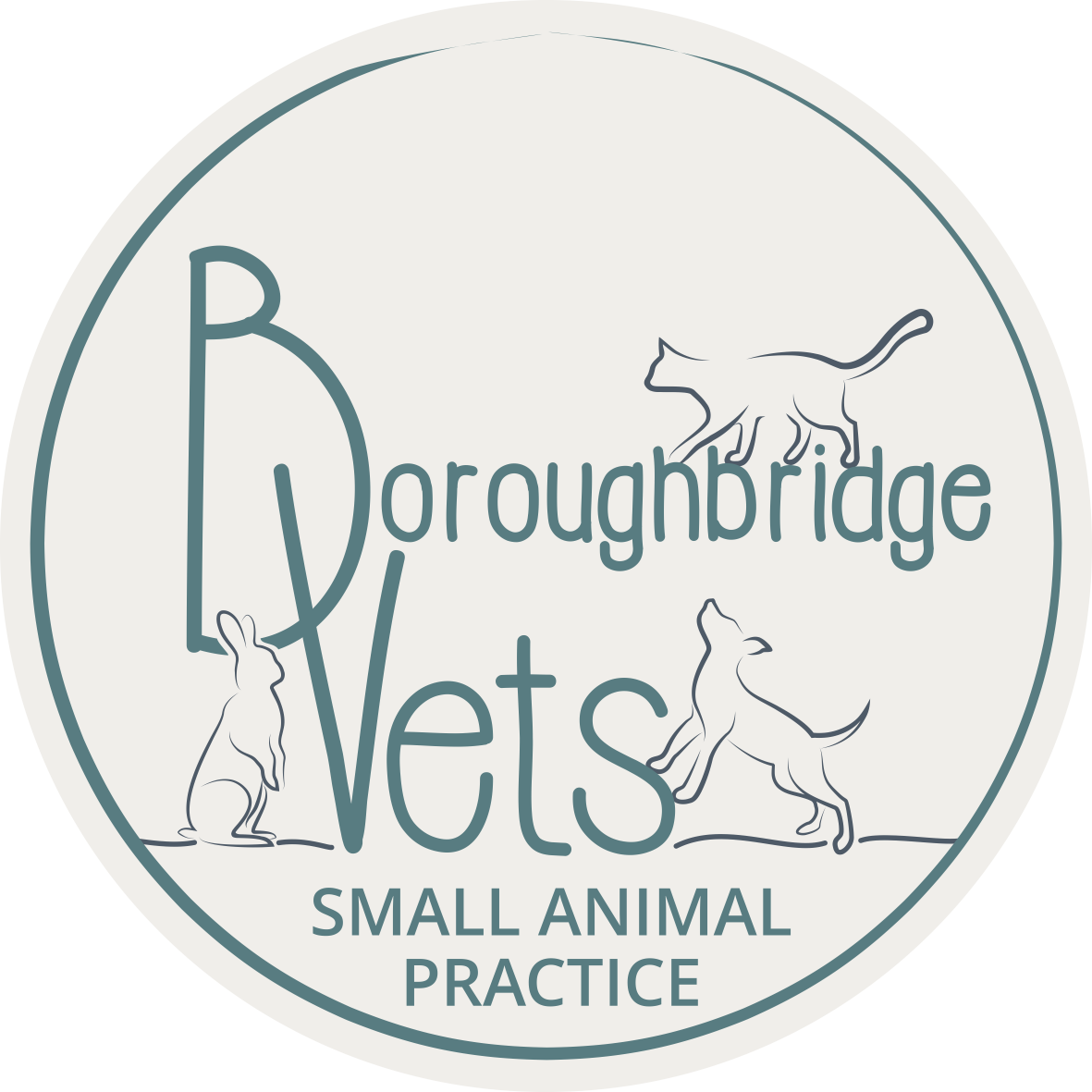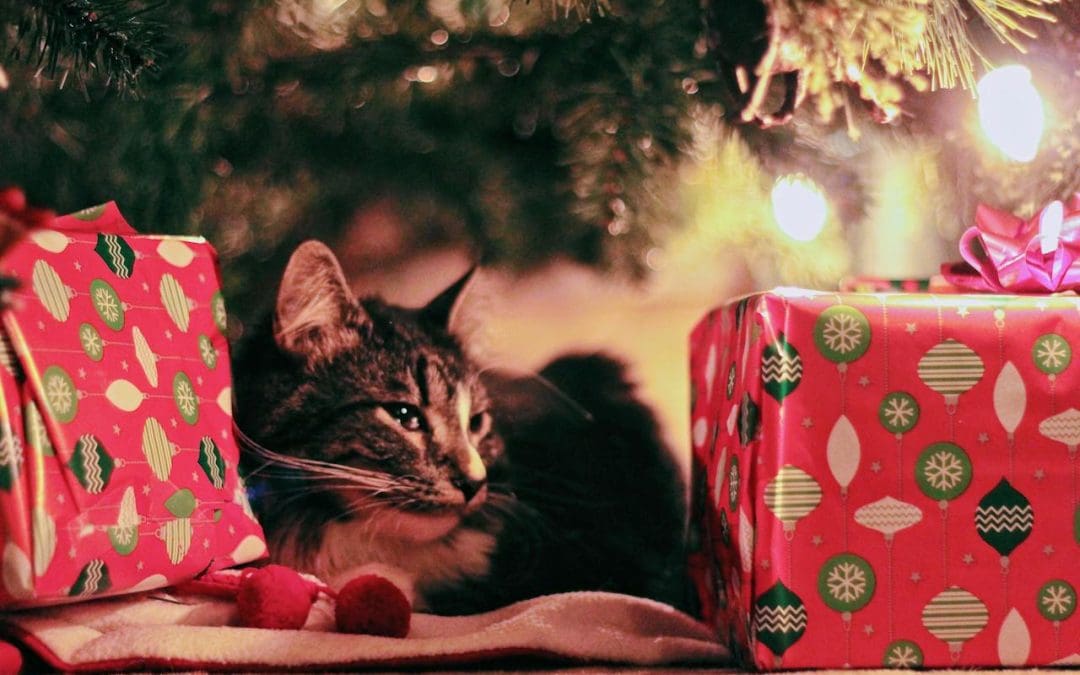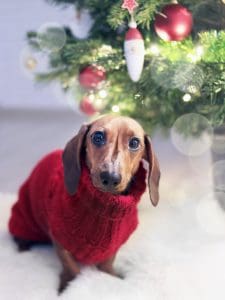We all want to enjoy the Christmas season, but it can be a stressful and risky time for our pets. Some forward planning can really help them enjoy their Christmas too and reduce the chances of an emergency Christmas visit to the vets!
Keeping calm
Christmas holidays can mean lots of visitors, family trips and changes of routine. While some pets enjoy these activities, others can find it stressful. Try to maintain their normal routine (feeding times, exercise etc) and read your pet’s body language. Never force them to socialise and provide a safe haven for them to hide away, if they need one. Consider a pheromone plug-in diffuser (Adaptil for dogs or Feliway for cats) to reduce anxiety.
The beautiful things we decorate our homes with at Christmas are not always pet friendly. Tinsel & ribbons are very attractive to cats and make nasty foreign bodies if swallowed. Glass baubles produce dangerous shards if broken and candles & lights are fire risks, if knocked over by pets. Tree decorations made of chocolate or salt dough can be toxic if ingested.
Christmas foods
It’s probably safest to keep titbits and treats to a minimum to avoid tummy upsets. Some of the foods we tend to have around Christmas need to be kept completely away from our pets. These include:
- Chocolate (never underestimate how determined dogs can be to get to your Christmas chocolate stash)
- Raisins and grapes (found in so many Christmas foods and highly toxic to some dogs)
- Onion and garlic (can cause serious anaemias)
- Cooked turkey bones (can be very sharp and potentially perforate intestines, if swallowed)
- Rich fatty foods (can trigger pancreatitis in some dogs)
- Sugar-free foods (some contain xylitol, which is highly toxic to dogs)
Christmas plants
Several of the plants we associate with Christmas are toxic to pets. Mistletoe, ivy, and poinsettias can cause relatively mild poisonings. Lilies are highly toxic, especially in cats and can cause acute kidney failure, which is often fatal if early treatment is not given.
If you think your pet has eaten or been exposed to a poison, you can call Homepage » Animal PoisonLine . They are open 24/7 and will be able to advise whether your pet needs urgent veterinary treatment.
Finally, when you’re opening the Christmas gifts, make sure pets, especially puppies, don’t eat any small toy parts or batteries!


